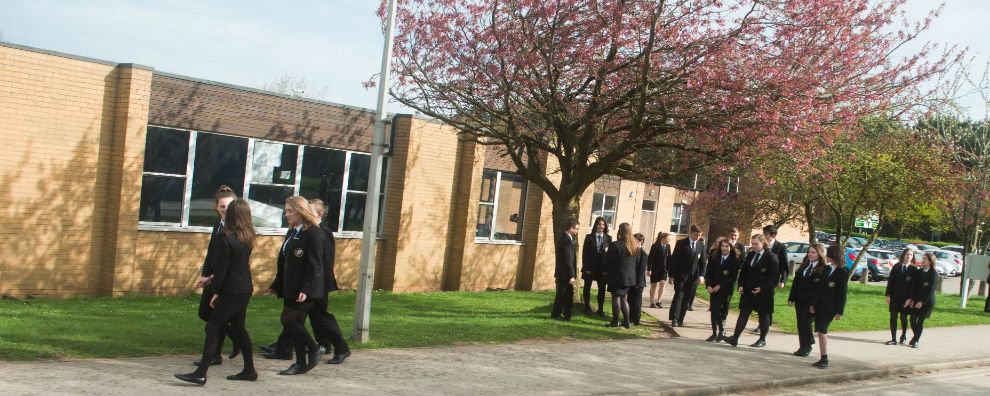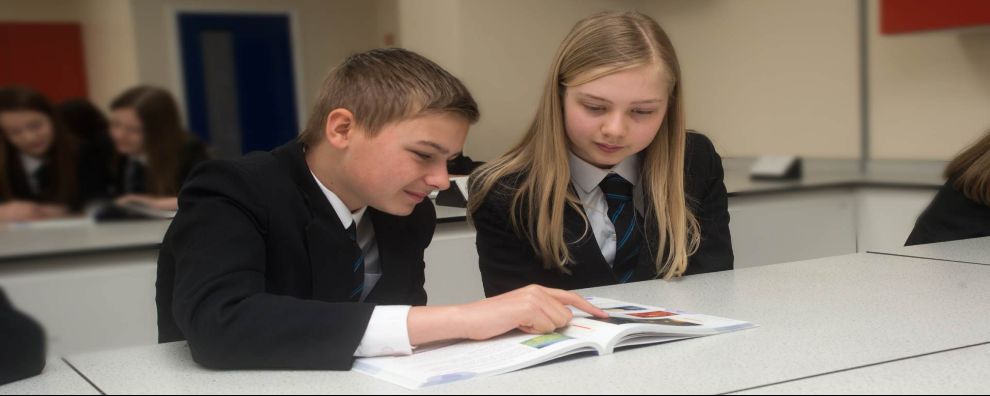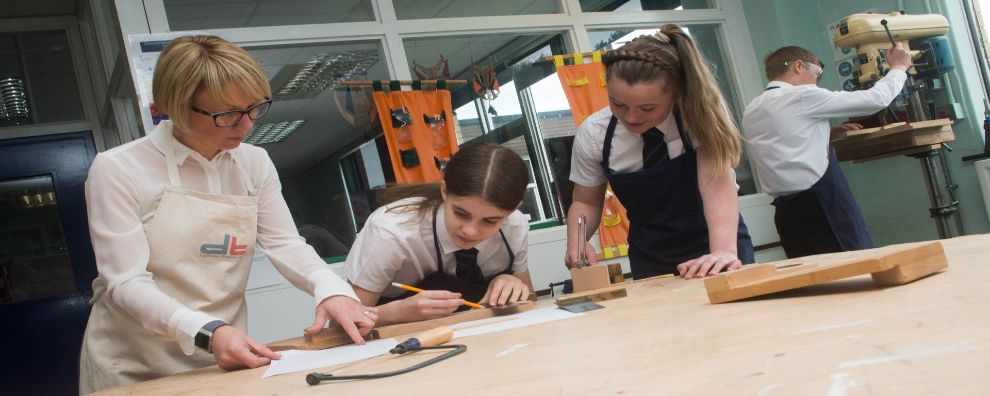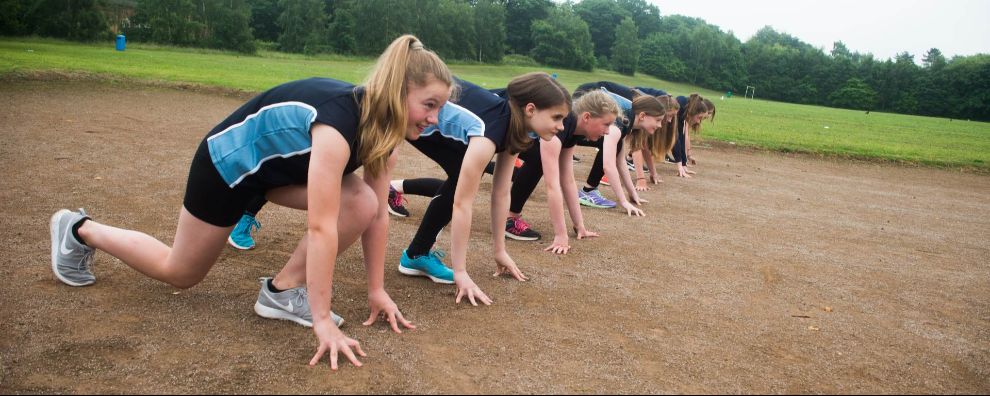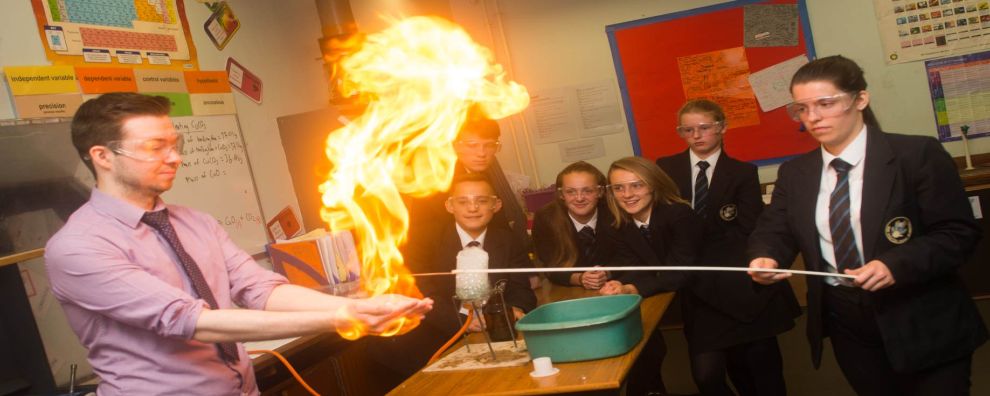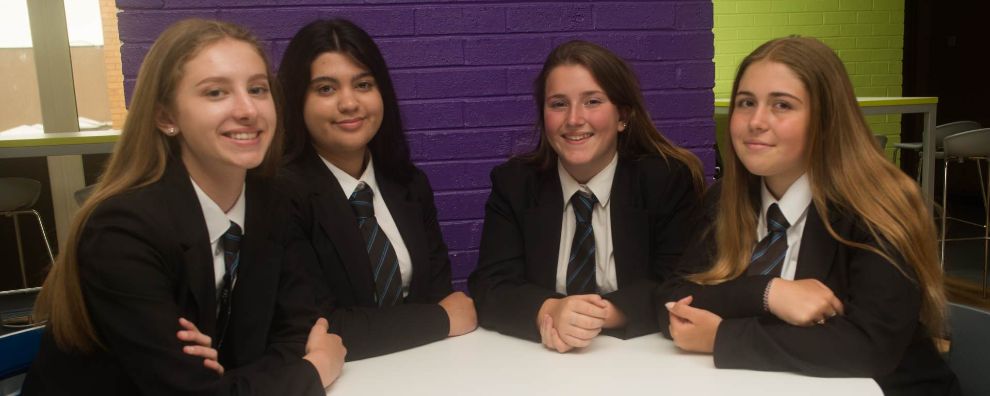Related Pages
- Curriculum Structure & Subjects
- Art
- Computing & Digital Literacy and Business Studies
- English
- SHARE (SOCIAL HEALTH AND RELATIONSHIP EDUCATION)
- Modern Foreign Languages
- Geography
- History
- Mathematics
- Performing Arts
- Physical Education
- Psychology (A level only)
- Science
- Design & Technology
- Learning Support SEN
- Super Curriculum
- Learning Journeys
Science
Aim
A high-quality science education provides the foundations for understanding the world through the specific disciplines of biology, chemistry and physics. Science has changed our lives and is vital to the world’s future prosperity, and all pupils should be taught essential aspects of the knowledge, methods, processes and uses of science. Through building up a body of key foundational knowledge and concepts, pupils should be encouraged to recognise the power of rational explanation and develop a sense of excitement and curiosity about natural phenomena. They should be encouraged to understand how science can be used to explain what is occurring, predict how things will behave, and analyse causes.
The national curriculum for science aims to ensure that all pupils:
- develop scientific knowledge and conceptual understanding through the specific disciplines of biology, chemistry and physics
- develop understanding of the nature, processes and methods of science through different types of science enquiries that help them to answer scientific questions about the world around them
- are equipped with the scientific knowledge required to understand the uses and implications of science, today and for the future
Curriculum Structure
Key Stage 3 Overview
Within the topics studied at KS3 students are given the opportunity to develop their scientific application skills. This allows students to develop their application of knowledge skills prior to their GCSEs. We cover the following units:
- Cells (Biology)
- Particles and their behaviour (Chemistry)
- Forces (Physics)
- Sound (Physics)
- Structure and function of the body (Biology)
- Elements, atoms and compounds (Chemistry)
- Reactions (Chemistry)
- Light (Physics)
- Acids and Alkalis (Chemistry)
- Reproduction (Biology)
- Space (Physics)
- Working Scientifically Application Lessons
- Health and Lifestyle (Biology)
- The Periodic Table (Chemistry)
- Electricity (Physics)
- Magnetism (Physics)
- Ecosystems (Biology)
- Separation Techniques (Chemistry)
- Energy (Physics)
- Adaptation and Inheritance (Biology)
- Metals and Acids (Chemistry)
- Motion and Pressure (Physics)
- The Earth (Physics)
- Working Scientifically Application Lessons
KS3 Assessment
Year 7 have three assessment points throughout the academic year (AP1, AP2 and AP3), each of which is within either the autumn, spring or summer term. These AP assessments cover content that has been studied up to that point. Therefore, AP assessments allow students to cover both recent and previous knowledge, acting as a good basis for continual retrieval of topics covered.
Students will be also assessed on a 4 week basis. This is done within lesson time and the assessments will cover the recently taught concepts. From these in-class assessments students will be given differentiated tasks to complete to focus and improve upon their areas of development.
Slip tests are also given throughout each term in Science and cover a variety of topics. These are done within lessons and allow students to participate in retrieval style activities.
When an AP assessments are close pupils will be assigned specific revision clock activities to complete which is part of the academies policy.
KS3 Homework
Year 7 have a variety of exciting and creative homework to complete throughout each term, which link to areas of their study. Examples of homework includes:
Making Model Cells (Biology), Research and making ear defenders (Physics),The Life of a Particle (Chemistry),Space (Physics)
Year 8 have a variety of exciting and creative homework to complete throughout each term, which link to areas of their study. Examples of homework includes:
Science Retrieval from Yr7 (all Sciences),Health and Lifestyle (Biology),Modelling Elements, Compounds and Mixtures (Chemistry),Ecosystems Project (Biology)
All homework is given a full week to be completed.
Revision is set separately to homework in line with assessments and our revision clock practice.
Key Stage 4 Overview
SCIENCE QUALIFICATION
We offer to routes for science qualifications; separate science award or combined science award, both with the AQA exam board.
The separate science qualification is optional when students take their option choices during year 8. This qualification award three separate GCSE’s, one for each science, and they are all independent of one another.
If students do not chose the separate science route, they automatically enter the combined Science award, which is called combined science Trilogy. Students receive two GCSE grades from this course and these are based on an average performance across all three sciences.
Both routes allow students to sit either higher (maximum grade of level 9) or foundation (maximum grade of level 5) papers. Those students undergoing the separate science qualification can chose different tiers for the different sciences. Those students undergoing combined science qualification have to sit the same tier for all sciences.
BIOLOGY
If you want to find out more about how your body works, the effects of drugs on your body, how the nervous and hormonal system work and how organisms are adapted to survive in different habitats this is the subject for you. We will look at evolution and how you inherit genes from your parents. We will learn how enzymes can be used in industry as well as your bodies! Separate scientists only go onto study the kidney and the heart and how they work efficiently. We will investigate how microbes can be used in the renewable biogas generators - a source of renewable energy. We will evaluate different methods for solving the world food shortage.
We cover the following topics:
Paper 1:
- Cell Biology
- Organisation
- Infection and response
- Bioenergetics
Paper 2:
- Homeostasis and response
- Inheritance, variation and evolution
- Ecology
CHEMISTRY
Pupils get a chance to analyse Chemistry used in industry, explain how we can apply our knowledge to Organic chemical processes and explain fuel energy changes as well as attempting many of the practical aspects covered at A-level. Pupils will study in depth the relationships between atoms and reactivity using simulations and experimentation. Separate Science is a fantastic opportunity to build upon your understanding of Science so far to achieve top grades in a subject vital for a range of careers.
We cover the following topics:
Paper 1:
- Atomic structure and the periodic table
- Bonding, structure and properties of matter
- Quantitative chemistry
- Chemical changes
- Energy changes
Paper 2:
- The rate and extent of chemical change
- Organic chemistry
- Chemical analysis
- Chemistry of the atmosphere
- Using resources
PHYSICS
Our modern world has been built upon and depends upon an understanding of physics. By studying physics, you are opening doors that will not only give you a greater understanding of the world we live in but may lead to you taking us another step forward in our understanding of the universe. Pupils will study what Physics has done for us, from how knowledge of forces has helped to create faster, safer vehicles to the potential role of nuclear physics in solving the world’s energy crisis. Many careers from engineering to astrophysics to medical engineers all start with physics and studying this subject could start an interest that leads to a job for life.
We cover the following topics:
Paper 1:
- Energy
- Electricity
- Particle model of matter
Paper 2:
- Atomic structure
- Forces
- Waves
- Magnetism and electromagnetism
- Space physics (separate science only)
KS4 Assessment
Years 9-11 have three assessment points throughout the academic year (AP1, AP2 and AP3), each of which is within either the autumn, spring or summer term.
These AP assessments cover content that has been studied up to that point. Therefore, AP assessments allow students to cover both recent and previous knowledge, acting as a good basis for continual retrieval of topics covered. In year 9 theses assessments may be a combination of the different science, whereas in years 10-11 these will be separate assessments (1 for each science).
Students will be also assessed on a 4 week basis. This is done within lesson time and the assessments will cover the recently taught concepts. From these in-class assessments students will be given differentiated tasks to complete to focus and improve upon their areas of development.
Slip tests are also given throughout each term in Science and cover a variety of topics. These are done within lessons or as homework’s and allow students to participate in retrieval style activities.
KS4 Homework
Pupils will be given a bank of exam questions which complement each topic across the three sciences. There is no set slot for this to be given as it is at the teacher’s discretion to assign these when they see fit. As we give more topic base questions across the three sciences we provide the relevant time frame dependent upon the size of the topic covered.
At regular intervals teachers will also assign Doddle quizzes and retrieval quizzes to ensure pupils are retaining previous content.
When an AP assessments are close pupils will be assigned specific revision clock activities to complete which is part of the academies policy.
KS5 Overview
All science A Levels aim to encourage learners to:
- essential knowledge and understanding of different areas of the subject and how they relate to each other and demonstrate a deep appreciation of the skills, knowledge and understanding of scientific methods
- competence and confidence in a variety of practical, mathematical and problem solving skills
- interest in, and enthusiasm for, the subject, including developing an interest in further study and careers associated with the subject
- understanding of how society makes decisions about scientific issues and how the sciences contribute to the success of the economy and society.
Biology A Level Edexcel A Specification
Topics of study:
- Lifestyle Health and Risk
- Genes and Health
- Voice of the Genome
- Biodiversity and Natural Resources
- On the Wild Side
- Immunity, infection and forensics
- Run for your Life
- Grey Matter
Chemistry A Level OCR Specification
Topics of Study:
- Module 1 – Development of practical skills in chemistry
- Module 2 – Foundations in chemistry
- Module 3 – Periodic table and energy
- Module 4 – Core organic chemistry
- Module 5 – Physical chemistry and transition elements
- Module 6 – Organic chemistry and analysis
Physics A Level AQA Specification
Topics of Study:
- Measurements and Errors
- Particles and Radiation
- Waves
- Mechanics and Energy
- Electricity
- Further Mechanics and thermal physics
- Fields
- Nuclear physics
- Astrophysics
Extra-Curricular Activities
For year 7s we run a Science club where students can come and learn about how science can be used for industry and for fun! At bonfire night we learnt about how to make fireworks; at Christmas we made our own everlasting snowflakes; in STEM week we learnt how to build super strong bridges and even made our own hovercrafts!
Lego club
Though normally run by the technology department we have been lucky enough this year to take over the annual Tomorrow’s engineers EEP robotics competition (https://robotics.tomorrowsengineers.org.uk/). This competition focusses on equality within engineering so is not just for boys! We predominantly ensure a 50/50 split to allow students to build their teamwork skills outside of their friendship groups. Sponsored by Rolls Royce, the RAF and Lego Mind storms this is an amazing opportunity for our year 8 students to design and build a robot out of Lego and see the more engaging applications of STEM based subjects. Being a national competition they will be competing at the RAF base in Cosford where in the past we have regularly made it into the grand finals at the big bang fair (held at the NEC in Birmingham).
Useful Links
- Online subscription to Doddle: https://www.doddlelearn.co.uk/app/login
Log-in details: School – The Weston Road Academy Username – your first name and last name together (all lower case) followed by the year you joined the academy. E.g Jo Bloggs joined year 7 in 2017, username is jobloggs17 Password – weston
Staff List
The teaching and support staff are currently:
Mr C Evans Subject Leader in Science cevans@westonroad.staff.sch.uk
Mrs W Burn Teacher of Science wburn@westonroad.staffs.sch.uk
Mrs I Byatt Teacher of Science ibyatt@westonroad.staffs.sch.uk
Mr S Cresswell Teacher of Science scresswell@westonroad.staffs.sch.uk
Dr H Floyd Teacher of Science hfloyd@westonroad.staffs.sch.uk
Miss J Green Teacher of Science jgreen@westonroad.staffs.sch.uk
Ms D Hubbard Teacher of Science dhubbard@westonroad.staffs.sch.uk
Mr E James Teacher of Science ejames@westonroad.staffs.sch.uk
Mr A Piercy Teacher of Science apiercy@westonroad.staffs.sch.uk
Mrs K Tubby Teacher of Science ktubby@westonroad.staffs.sch.uk

